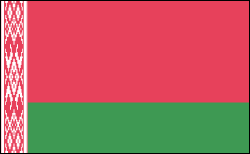- / Countries of the World
- / history
Belarus History

Index
Expanded Presidential Power Leads to Oppression and Corruption
Belarus declared its sovereignty in July 1990 and its independence in Aug. 1991. It became a cofounder of the Commonwealth of Independent States (CIS) in Dec. 1991. In Jan. 1994, the country's parliament ousted its reform-minded leader, Stanislav Shushkevich, in protest against his support for market economics. He was replaced by Alyaksandr Lukashenka, who, over the next two years, greatly expanded the powers of the presidency. Lukashenka sought to renew ties with Russia, and, with much fanfare, Belarus and Russia signed a treaty in April 1997 aimed at significantly increasing cooperation between the two states, stopping just short of union. The Russian financial crisis that began in fall 1998 severely affected Belarus's Soviet-style planned economy.
The EU and the U.S. have denounced the increasingly oppressive political atmosphere and human rights violations in Belarus under the Soviet-style authoritarianism of President Lukashenka. In 1999, the year Lukashenka was to step down, he rigged a national referendum allowing him to cancel the elections and remain president. Lukashenka's government has been accused of running a death squad that has killed dozens, including opposition party members and underworld figures. After harassing the opposition and curtailing their campaign activities, Lukashenka won reelection in the Sept. 9, 2001, presidential race. In 2004, the Council of Europe strongly criticized the Belarus government for blocking investigation into the disappearance of four dissidents in 1999 and 2000.
Presidential elections in March 2006 reelected Lukashenka with 83% of the vote. Supporters of opposition candidates took to the streets of Minsk to protest the results. The police cracked down on the demonstrations and arrested dozens. The U.S. and other Western nations declared the election fraudulent, and the EU imposed economic sanctions on Lukashenka and a number of his ministers.
